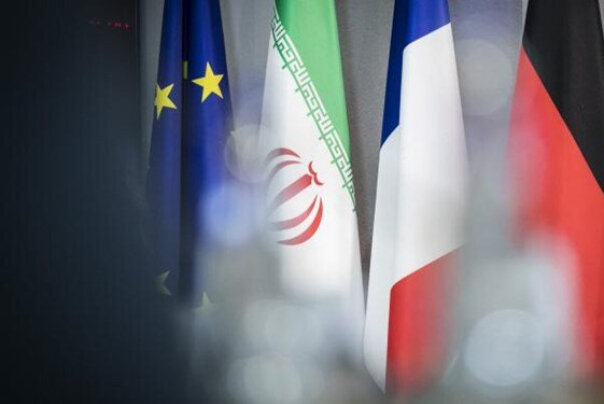A new sheriff in town

TEHRAN – The new government of Iran is preparing for a new round of talks in Vienna later this month aimed at removing U.S. sanctions on Iran.
A flurry of diplomatic efforts on the part of Iran shows that the upcoming talks are going to be dealt with from a different perspective.
Iran’s chief negotiator, Ali Bagheri Kani, has toured a number of European countries in a bid to set the stage for what Iranian officials called “result-oriented” talks whose success would only be measured with their effectiveness in removing the U.S. sanctions on Iran.
The deputy foreign minister of Iran met with his counterparts in France, Germany, and the UK ahead of the seventh round of the Vienna talks scheduled to take place on November 29.
Prior to Bagheri Kani’s visit, Iranian Foreign Minister Hossein Amir Abdollahian held telephone conversations with the foreign ministers of the countries participating in the Vienna talks, including the European trio of France, Germany, and the UK.
The foreign ministers of the three European countries – collectively known as the E3 – pressed Iran on resuming the Vienna talks where they ended on June 20 when the sixth round was concluded under former Iranian President Hassan Rouhani.
Undaunted by the Europeans’ pressure, the Iranian foreign minister straightforwardly announced to his European interlocutors that the Vienna talks would resume in a new spirit.
“The Vienna talks’ success is contingent on the removal of all sanctions, the return of all sides to their obligations, giving necessary assurances about the implementation of all talks’ results, and verification of actions by the other sides,” Amir Abdollahian told his British counterpart Liz Truss.
This appeared to be part of a broader Iranian strategy to redefine the agenda of talks. Bagheri Kani ushered this new approach while on his European tour. He said there will be no nuclear negotiations at the Vienna talks later this month and the talks would only focus on the implications of the U.S. withdrawal from the 2015 nuclear deal between Iran and the major world powers.
The Europeans seem to have not yet come to terms with the new Iran strategy and still think it’s business as usual. This required Amir Abdollahian to bring his French counterpart Jean-Yves Le Drian down to earth. “Iran wants a good agreement, but it has requirements, including the other sides fully complying with their commitments and the effective lifting of sanctions,” the Iranian foreign minister told Le Drian. Furthermore, Amir Abdollahian appeared underlining the importance of Iran’s missile program. “Iran, like any other country, is entitled to have a defense program as a sovereign right,” he said, adding, “Tehran will move full steam ahead to increase its defense power without paying attention to the United States’ unconstructive sanctions policy.”
It’s believed that Bagheri Kani relayed the same message during his European trip, something that prompted the British Foreign Office to call on Iran to seize the “opportunity” and conclude what is on offer now, that is the 2015 nuclear deal. The British officials “reiterated that Iran should take the opportunity to conclude the Joint Comprehensive Plan of Action (JCPOA) deal on the table now,” said a British statement on Bagheri Kani’s visit to London.
The Iranian foreign minister reiterated Iran’s position again on Instagram. “The Islamic Republic of Iran is entering the talks with a pragmatic and result-oriented approach and it is determined to reach a good deal, but this entails effective and verifiable removal of sanctions and the return of all sides to full compliance with their commitments,” he said.
Hinting at Iran’s new approach, Amir Abdollahian pointed out that “Iran does not intend to remain stuck in the stalemate of previous talks, as we already have access to those negotiations.”
The current state of play between Iran and the negotiating partners in Vienna is well nigh clear: Iran has had enough with the previous atmosphere that prevailed in the last six rounds of talks and produced no tangible results. Therefore, it’s high time to, as a famous Persian poet put it, rinse eyes and start viewing things differently.
But this approach is likely to draw criticism from the Europeans. And Iran is not fearful of this backlash. “On the path to the talks and in media terms, using a language of force and threats is not helpful and the Islamic Republic of Iran will not give in to unfounded propaganda. Any inaccurate comment, which does not comply with the facts, can jeopardize ongoing efforts,” Amir Abdollahian told his German counterpart, Heiko Maas.
Leave a Comment